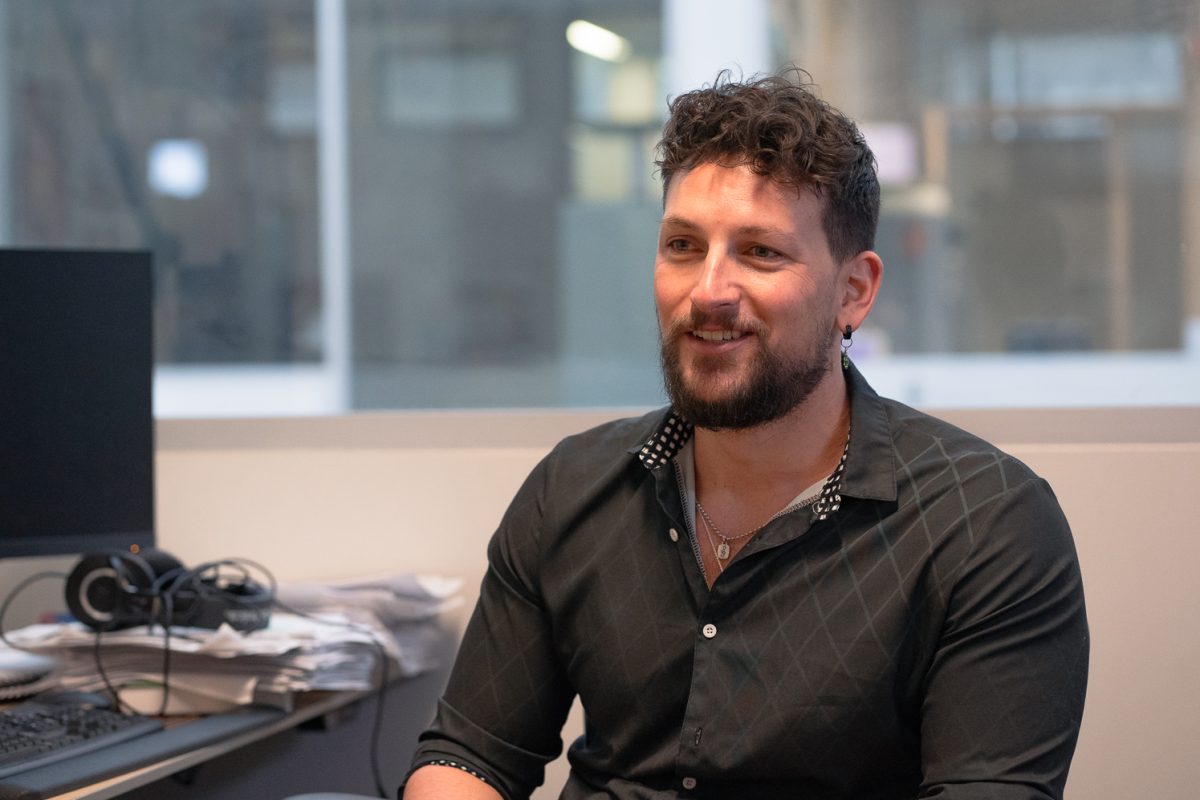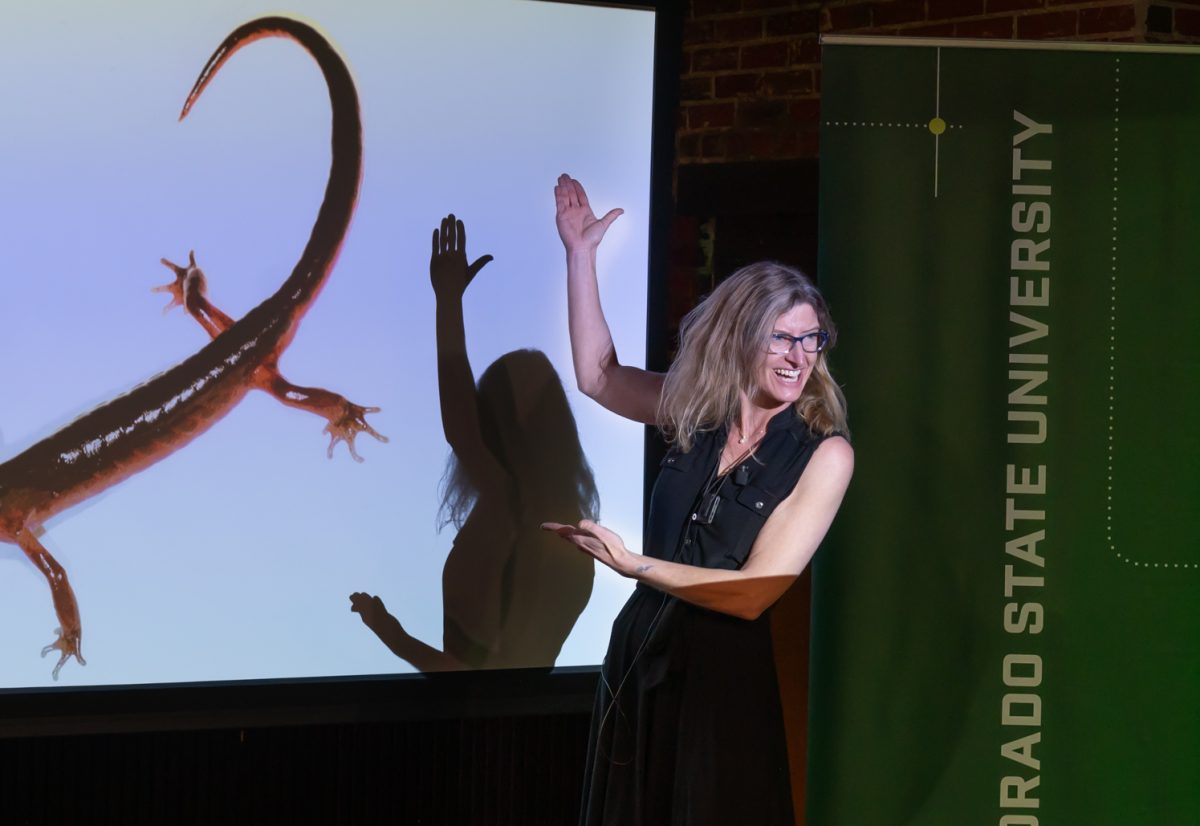Climate change is a pressing concern for many students, and universities are taking steps to meet this demand. New initiatives and research at Colorado State University aim to position the school as a leading institution for climate action in the United States.
New opportunities for climate education
Students want to take climate action, and CSU is listening. The new CSU Climate Initiative is “a university-wide collaboration to address climate change,” according to its website. One of the initiative’s goals is to create more educational opportunities for students to become climate leaders.
“CSU has an incredible ability to do interdisciplinary research and education on climate change and be a major leader in this area.” -Courtney Schultz, CSU Climate Initiative director
“Students have told us really clearly that they want to focus on solutions,” CSU Climate Initiative Director Courtney Schultz said.
A first step toward this goal is the development of a new undergraduate certificate that will “empower students to be leaders in this area and also allow them to stand out in the job search,” Schultz said.
The proposed undergraduate certificate in climate change and society will be offered starting fall 2024, pending approval, and will be available to students of all declared majors, Schultz said.
The certificate will consist of four courses that students can take for a total of 12 credits. These courses will span across different disciplines, including atmospheric sciences, earth systems science and ecology and sociopolitical aspects of climate change.
The certificate will also include solutions-oriented courses that take on the real-world challenges posed by climate change, such as addressing climate change impacts through business and energy solutions.
Eventually, Schultz said the goal is to offer multiple certificates that could potentially add up to a minor, although this has yet to be formally proposed. Exactly what this looks like will depend on student feedback, and the Climate Initiative is actively seeking undergraduate voices to provide input on these projects.
Students can email climate_initiative@colostate.edu to give feedback, offer ideas or express interest in being part of future student-focused listening sessions.
Uniting climate-focused researchers
In addition to providing education opportunities for students, the Climate Initiative aims to unite CSU researchers “working on all aspects of climate change,” according to their website. Schultz said the Climate Initiative plans to organize discussion groups, informal talks and networking sessions for researchers and students to come together and get to know each other.
“It’s amazing how many people at CSU work on different aspects of climate change and are really incredible at it,” Schultz said. “CSU has an incredible ability to do interdisciplinary research and education on climate change and be a major leader in this area. ”
This effort includes a faculty training workshop called Climate Across the Curriculum, Schultz said. Faculty members can choose to take this workshop to gain a better understanding of the social and biophysical science of climate change and learn how to incorporate it into any course as a lesson.
This training workshop was successfully implemented at the University of Colorado Boulder two years ago. The CSU Climate Across the Curriculum is financially supported by CU Boulder alum Scott King, the executive director of Mission Zero, a Colorado-based company focused on helping homeowners reduce carbon emissions.
“Our climate crisis is not just an environmental issue; it is an all-encompassing challenge that intersects with economics, social justice and technology,” King said. “By weaving climate science into the fabric of CSU’s diverse curricula, we are equipping our future leaders with the comprehensive understanding they need to devise effective solutions.”
CSU research contributes to climate solutions
As a land-grant institution, CSU has a strong connection to applied research. Many research groups on campus focus on climate solutions with the goal of informing policy decisions.
One such research group is led by Keith Paustian, a CSU distinguished professor in the department of soil and crop sciences. Paustian and his team recently contributed to a climate report called Roads to Removal, which paves the way for carbon dioxide removal in the United States.
The report provides a comprehensive overview of ways to remove CO2 from the atmosphere. This is an important step in achieving net-zero carbon emissions in the United States.
Paustian studies how improved agricultural practices can aid in carbon removal. Methods like regenerative agriculture and planting native vegetation can increase carbon storage in the soil, which keeps it from being released into the atmosphere, Paustian said.
“You’re not only taking carbon out of the atmosphere; you’re putting it into organic matter in the soil,” Paustian said. “That also enriches the soil. It makes it more fertile. It makes it more productive and makes it healthier, and you get a lot of other environmental benefits.”
Reach Lizzy Rylance at science@collegian.com or on Twitter @CSUCollegian.












